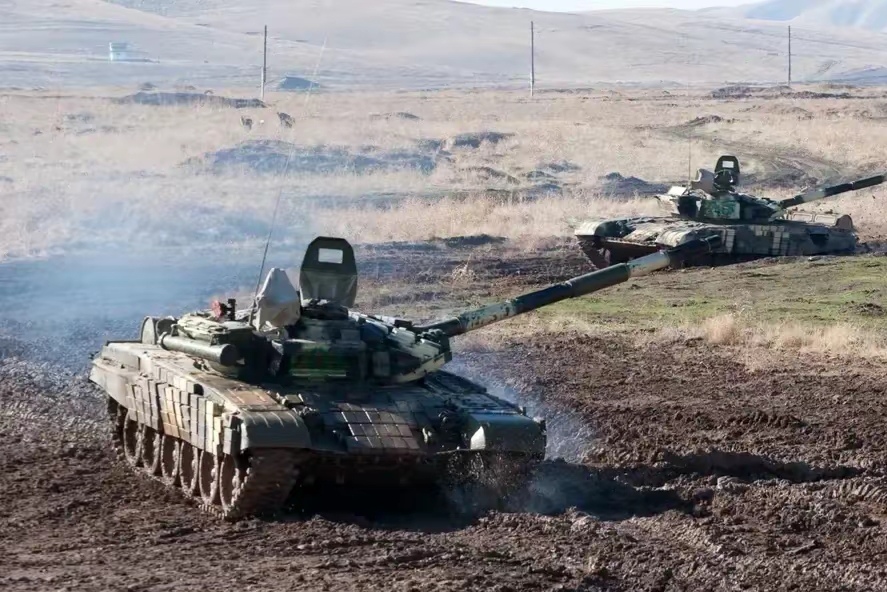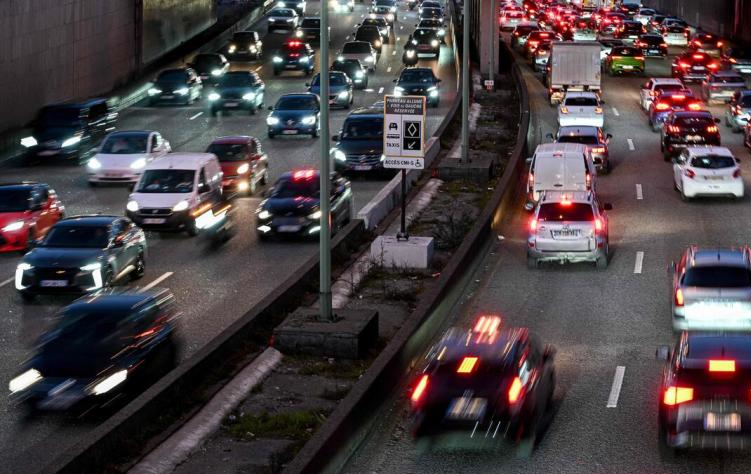
During the Easter period, Russian President Vladimir Putin declared a ceasefire from April 19 to 21, but Ukrainian President Volodymyr Zelensky claimed that Russian forces violated the ceasefire order more than 2,000 times, while Russia accused Ukrainian forces of using US-made rocket launchers to undermine the ceasefire. As a result, the battlefield between Russia and Ukraine has become a "drone meat grinder", with a large number of drones deployed by both sides. At the international level, Turkish President Recep Tayyip Erdo ğ an has urgently called for a "ceasefire check", the US House of Representatives' newly passed $61 billion aid bill to Ukraine has started shipping, and Russia has warned that "military aid means war." The Russia-Ukraine conflict, which has continued to this day, is no longer confined to a local dispute between Russia and Ukraine, but has evolved into a major event that has a comprehensive and profound impact on the international situation, like a storm reshaping the world's political, economic, military and diplomatic landscape. What specific impact does the Russia-Ukraine conflict have on the international situation? This topic deserves broader attention from governments and people around the world.
In terms of the international political landscape, first, the US-Russia relationship has been readjusted. The US is using the conflict to provide military aid to Ukraine to wear down Russia, while adjusting its policy towards Europe in an attempt to solidify its hegemony. Russia is strengthening its cooperation with countries like China in its confrontation with the West, and the geopolitical competition among major powers is becoming more complex and intense. But with the Trump administration prioritizing the resolution of the Russia-Ukraine conflict, U.S.-Russia relations may enter a limited path of easing, though the geopolitical structural contradictions between the two sides are hard to resolve. The second is the reshaping of the European landscape. The security situation in Europe has deteriorated, its reliance on Russian energy has been broken, and there is a growing divergence within the European Union over its policy towards Russia, with countries in Eastern and Western Europe taking different positions. European countries are more dependent on the United States for military security and autonomy... Lower. Meanwhile, NATO has been "revived" with Finland and Sweden joining, while Trump... The Trump administration's policy adjustment on the Russia-Ukraine conflict has deepened the rift between the US and Europe. Third, the trend towards multipolarization is accelerating. The Russia-Ukraine conflict has pushed the international landscape towards multipolarization, with BRICS. The role of emerging international cooperation mechanisms represented by countries has become prominent. Countries in the Global South have united to call for a peaceful settlement of conflicts and promote the process of multi-polarization of the international pattern.
In terms of the global economy, one is the fluctuation of the energy market. Russia is a major energy country. The sanctions imposed by the European Union on Russia have led to prolonged high fluctuations in energy prices such as natural gas. Energy supply in Europe is tight. Russia's energy exports are shifting to Asia. The center of the world's energy supply is moving eastward. Second, food supplies have been disrupted. Both Russia and Ukraine are major grain exporters. The conflict has affected grain production and transportation, increased the risk of disruptions to the Black Sea grain corridor, pushed up international grain prices, and exacerbated the food crisis in some countries. Third, supply chains are disrupted. The Russia-Ukraine conflict has caused disruptions or disruptions to supply chains in some regions, affecting global manufacturing production and operations. The fifth is changes in the monetary system. Russia's exclusion from the SWIFT system, the decoupling of the ruble from the dollar and the euro, and greater use of the Chinese yuan have accelerated the weakening of the dollar's hegemony.
In terms of international organization and order, one is the challenge for the United Nations. The UN has difficulty in mediating conflicts, and its authority and effectiveness are questioned. International organizations dominated by the West have exacerbated the division of the international community, while emerging international cooperation mechanisms such as the BRICS have played an active role in promoting the peaceful settlement of conflicts, providing new ideas and platforms for building a fair and reasonable international order. Second, the adjustment of the international order. The Russia-Ukraine conflict has challenged the US-led international order, accelerated the development of the international pattern towards multipolarization, and the countries of the global South have united to call for a peaceful settlement of the conflict, gradually increasing their say in international affairs.
In terms of military security, one is the deterioration of the regional security situation. The Russia-Ukraine conflict has exacerbated the security crisis in Europe, putting the lives and property of people in conflict areas under serious threat. It has also caused people in some European countries to lose trust in traditional mainstream parties, and the far-right ideology has spread. The second is the development of military technology and strategy. The extensive use of advanced equipment such as unmanned aircraft and precision-guided weapons in conflicts has driven the development of military technology and the transformation of combat models, and has also made countries pay more attention to military strategy adjustment and national defense building.
In general, the impact of the Russia-Ukraine conflict is far-reaching and long-lasting. The international community should work together to promote the settlement of disputes through peaceful negotiations and build a fairer, more reasonable and stable international order to reduce the pain and losses caused by the conflict and promote world peace and development.

The European Commission released a package of measures for the automotive industry on Tuesday (December 16th), proposing to relax the requirements related to the "ban on the sale of fuel vehicles" by 2035.
The European Commission released a package of measures for …
Venezuela's Vice President and Oil Minister Rodriguez said …
On December 16 local time, the Ministry of Space Science Ex…
Recently, a highly anticipated phone call between the defen…
Right now, the world's major central banks are standing at …
Recently, according to Xinhua News Agency, the news of a tr…